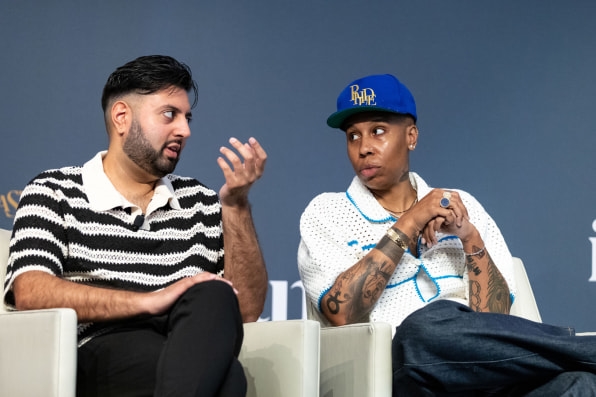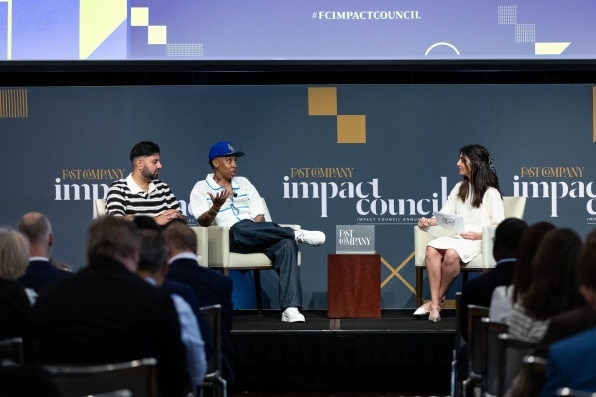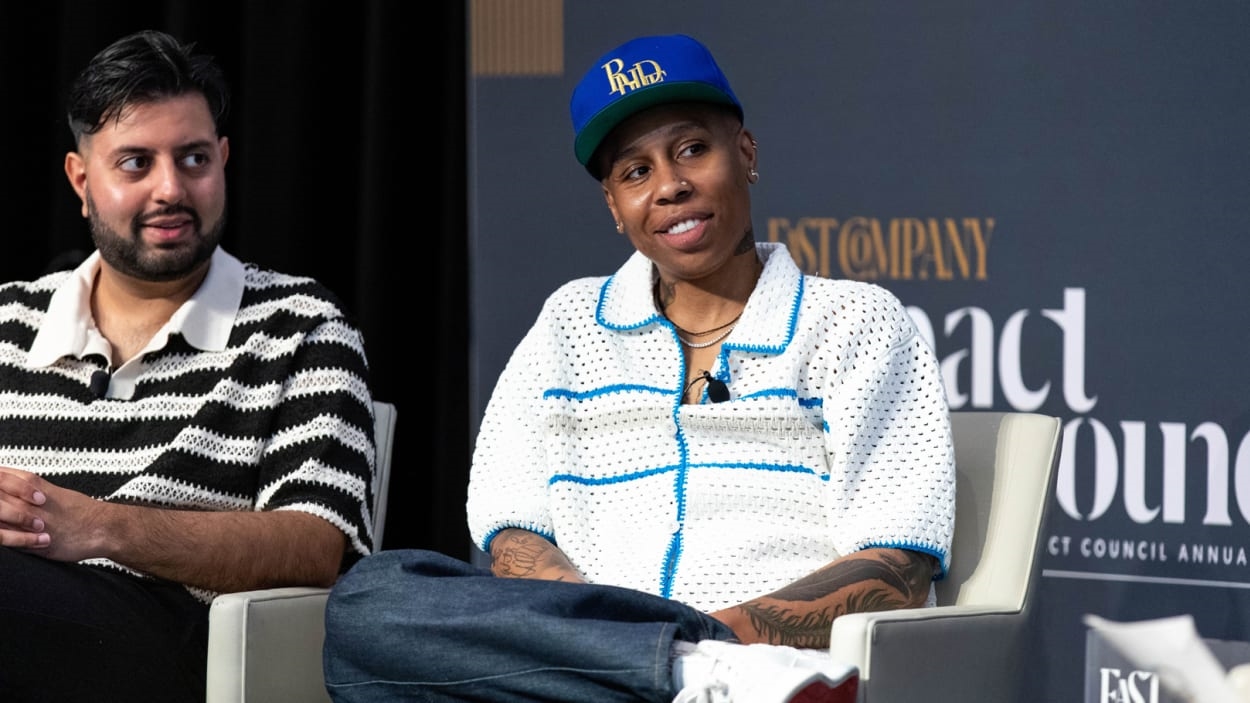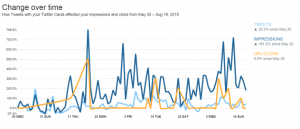For years, Hollywood has claimed that it has fixed or made gains toward fixing its diversity problem. But while the industry has made small movements toward change, its monolithic misconceptions about marginalized communities still reign as the dominant narrative, and stories are still largely created for white audiences.
At Fast Company’s annual Impact Council meeting, Lena Waithe, founder of Hillman Grad, and Rishi Rajani, its CEO, spoke about their partnership and the importance of supporting all stories.
The genesis of Hillman Grad emerged from Waithe’s desire to produce her own work while also supporting the talent of other diverse filmmakers. Waithe and Rajani’s partnership is a result of Rajani’s similar experience of working in the industry and being bombarded with the same story and ideas about diverse communities that are diverse within themselves.

“I was a bit frustrated working in the confines of the studio system and trying to make content that lived in this ‘diversity renaissance’ that Hollywood is having,” Rajani said. “There were such monolithic interpretations of diverse people and underrepresented voices and only one way to tell each story.”
Hollywood has never produced an environment that is conducive to amplifying or encouraging diverse talent to rise up the ranks. The stagnant culture of career advancement for diverse workers in the entertainment industry only keeps talented people out and the number of diverse stories to a minimum. Stories that are told are presented as if they represent everything and everyone, but marginalized communities can’t be explained or represented in one way.
“I was frustrated as a South Asian person and only being sent arranged marriage scripts for a very long time,” Rajani said. “One thing I appreciated was about Lena: She said that there’s more than one way to be Black, to be Brown, to be queer, to be disabled. What I saw in Lena was a fierce kinship in this drive and determination to be able to tell stories that were unexpected.”
Hillman Grad’s commitment to diversity is more than just in name. It’s also established a mentorship program to provide emerging talent with industry resources that they otherwise wouldn’t have. Both Waithe and Rajani have had mentors throughout their careers and understand the struggle it takes for marginalized creators to get their foot in the door. It’s also part of the reason why much of the content they produce is mostly from first-time filmmakers.
Big studios and producers are typically risk averse when it comes to emerging talent, but Hillman Grad has bolstered talent from its mentorship program, helping filmmakers build resumes with both corporate and creative work—and it’s paid off.

“We wanted to be the company where you could come and make your first film, get your first staffing job, direct your first episode of television,” Rajani said. “What we’ve discovered is a great business model, betting on talent at an early stage.”
Amid the current Writers Guild of America strike, many writers on the picket lines, mostly those of color, have spoken out about the lack of mentorship and the culture that keeps young writers in assistant positions with no room to advance. In a study from the University of Southern California’s Annenberg Inclusion Initiative, Hollywood’s diversity data has shown that progress has either dipped or held steady. Hollywood has a long way to go, but Hillman Grad is already doing the work. Since launching, Hillman Grad has been home to award-winning films like Melina Matsoukas’s Queen & Slim, Radha Blank’s The Forty-Year-Old Version, and feature debuts by A.V. Rockwell (A Thousand and One) and Jinygi Chao (Chang Can Dunk).
Corporations and investment firms are paying attention to the impact that production companies like Hillman Grad can have and are making the move to put their dollars toward their business. In 2021, Reese Witherspoon’s Hello Sunshine was acquired by Candle Media for $900 million. As far as investment partners go, Hillman Grad is “open for business,” with a few caveats.

“In these past five years of building Hillman Grad, it’s very important for us, for Lena, to have creative control of the company and for us to be able to make creative decisions and establish ourselves as a producing force in Hollywood,” Rajani said. “We’d love to find investment partners who believe in the mission of Hillman Grad: that there needs to be diversity in front and behind the camera, that we need to be supporting stories that could be considered risks or niche. We’re here for any conversation that allows us to continue that mission.”
As innovation seemingly remains static in Hollywood, Waithe believes that innovative thinking in Hollywood begins with leading with authenticity.
“The biggest thing for me to be innovative is to not be surface or performative,” Waithe said. “For us, it’s embedded in what we do; it’s in the fabric. We focus on putting people together who have the same mindset, not because they look the same or come from the same place.”

(1)








